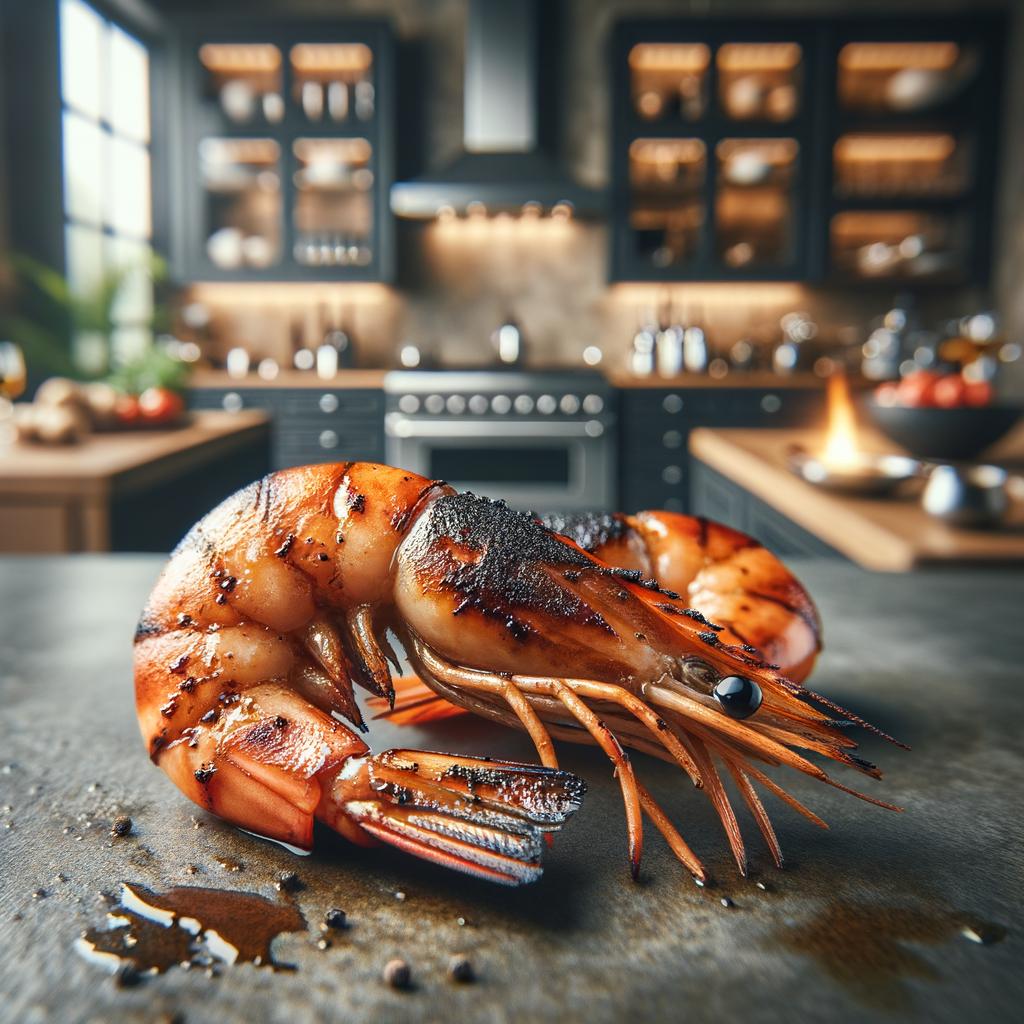Grilled Shrimp

Description
Grilled shrimp are a culinary delight, a treasure of the sea, offering a delightful blend of sweetness and brine. They are small, yet robust, their bodies curled into a perfect arc when grilled to perfection. Their exterior, a tantalizing shade of pink with stripes of char, gives way to a tender and succulent interior. The texture is firm yet yielding, a satisfying bite that is both juicy and meaty. Their flavor profile is a delicate balance of sweetness and salinity, a natural testament to their oceanic origins. What sets grilled shrimp apart is their smoky undertone, a unique characteristic that is a direct result of the grilling process.
Primary Uses
Grilled shrimp are versatile and find their place in a variety of cuisines and dishes. They are commonly used in salads, pastas, skewers, and tacos, or served simply with a squeeze of lemon as a standalone dish. In Asian cuisine, they often feature in stir-fries and curries, their delicate flavor complementing the bold spices. Grilled shrimp are also a popular choice for barbecues and outdoor cookouts. Apart from their culinary uses, in some cultures, they are considered a symbol of abundance and prosperity.
History
The history of shrimp is as deep and vast as the oceans they hail from. Shrimp have been a staple in diets for centuries, with evidence of their consumption dating back to ancient civilizations. Grilling, as a cooking technique, has its roots in primitive cooking methods, making grilled shrimp a dish steeped in history. The popularity of grilled shrimp has evolved over time, with different cultures adding their unique twists. For instance, in the southern United States, grilled shrimp is often paired with grits, a dish that has its origins in Native American cuisine. There are numerous folklores associated with shrimp, including an old sailor's tale that considers the sight of shrimp at sea as a good omen.
Nutritional Information
Grilled shrimp are not just a treat for the palate, but also a boon for the body. They are a rich source of protein, providing essential amino acids. They are low in calories and fat, making them a healthy choice for those watching their weight. Shrimp are also a good source of Omega-3 fatty acids, known for their heart health benefits. They contain important minerals like iodine, zinc, and selenium, and are a good source of Vitamin B12. Compared to other protein sources like chicken or beef, shrimp have a lower calorie and fat content, yet pack a punch in terms of protein and nutrient density. However, it's important to note that shrimp are high in cholesterol, so they should be consumed in moderation, especially by individuals with certain health conditions.

